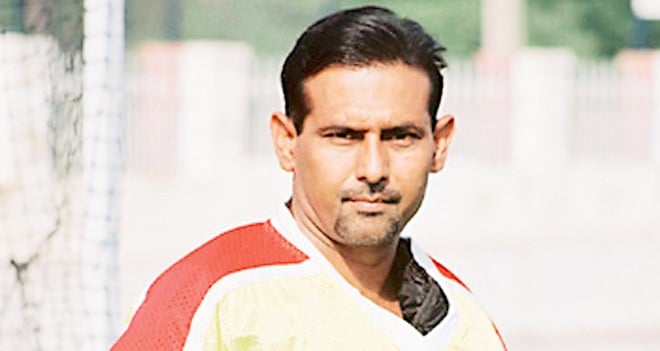

According to Mansoor, it was one of the most incredible experiences of his life.
Interacting with such children and imparting life skills to them left a profound impression on Mansoor. No doubt the principal of the school looks after the children like her own children, but they have undeniably missed the love of an affectionate father.
Most of these children lost their parents in Afghan war, Swat operation or other military actions. By just having a look into the eyes of these young boys, one can notice that trauma was memorised in their bodies and souls. They have suffered from dissociative disorders, depression, anxiety, difficulties in concentration, panic attacks and post-traumatic stress.
Imparting life skills to such a group seems very challenging, but when Sports Development Foundation (SDF) started its programme and Mansoor extended his whole hearted support, the insurmountable challenge was reduced to zippo.
On the concluding day of our programme at the SKY school, the operation "Zarb-e-Azb" was launched. The IDPs have started pouring in from their native villages to nearby towns. Over 500,000 IDPs have already come into Mata Khail and other camps in Bannu, Tank and Dera Ismail Khan and Lakki Marwat. The 200,000 children among them are the most vulnerable.
The government has announced a relief of Rs1200 for each family, but we know that no amount of money can mitigate the social and psychological problems faced by these people.
Their rehabilitation will indeed be a big challenge for the local administration which will be compounded in the holy month of Ramadan.
Taking advantage of the situation, a few smart sport bodies in the country will join the bandwagon by arranging a couple of football matches in the name of sport for peace. These ill-planned sport activities will hardly serve the cause and will not have any long-term and sustainable outcome.
Adapting the sports project to the circumstances of participants and the post-disaster or post-war context is difficult but essential.
The International Council of Sport Sciences and Physical Education in collaboration with Kennesaw State University and the Swiss Academy for Development has carried out some fantastic work in this area, which may be of great value for both the sport bodies and the local administration interested in organizing sport activities for the displaced.
Ley, a sport for development expert, developed a programme in Guatemala’s post-war context, using group-based techniques with therapeutic tools following the Salutogenesis health model to address post-disaster scenarios.
When the refugees had to flee out of their native villages in emergency as is happening in Waziristan, they leave behind not only belongings and homes, but also the important social networks and a certain way of life. In the IDP camps they face new situations, insecurity and dependency.
Their sense of coherence is affected substantially and they often perceive the world as unpredictable and meaningless with an increased sense of isolation and discrimination.
Research in sport psychology has shown that sport and exercise activity organised under expert sport psychologists have been very helpful to address the problems of such children.
Besides regular sports activities in IDP camps, the physical activity should include relaxation techniques to improve the self-perception, check depression and enhance immunity against diseases in IDP camps.
At the Armed Forces Institute of Rehabilitation Medicine (AFIRM) the famous Shamshad Yogi and his team is using yoga and breath exercises to rehabilitate and eliminate anxiety and depression in the war-wounded returning from North Waziristan.
The study of grassroots development of a unique sport parkour in the conflict-torn Gaza Strip is particularly interesting. The sport of parkour reached Gaza in 2005, when a university graduate Abdullah Anshasi watched the documentary "Jump London".
Abdullah found parkour much more than a sport. "It’s a life philosophy that encourages each individual to overcome barriers in their own way," said Anshasi. "I have witnessed war, invasion and killing. When I was a kid I saw these things, blood and injuries. I didn’t know what it all meant… this game (parkour) makes me forget all these things."
The pioneers of parkour in Gaza are now working with a group of peers to support the next generation of parkour enthusiasts.
Our sport bodies and leading sportsperson may like to follow the footsteps of the Olympian Mansoor Ahmed. They must visit the IDP camps and go to schools, colleges and marginalised segments of society to ignite a ray of hope among the depressed and dejected.
The IDPs will be delighted to find their sport heroes amongst them. Their presence will relieve the psychological pressure and anxiety and elevate their modes. The sport bodies, including provincial sports boards, must come up with sustainable professional sport solutions to help the war-hit youth reaching IDP camps.
In case the sport bodies find themselves unable to do the job, it will be better for the provincial government to hire the services of sport for peace & development consultants to evaluate the situation and come up with comprehensive workable projects.